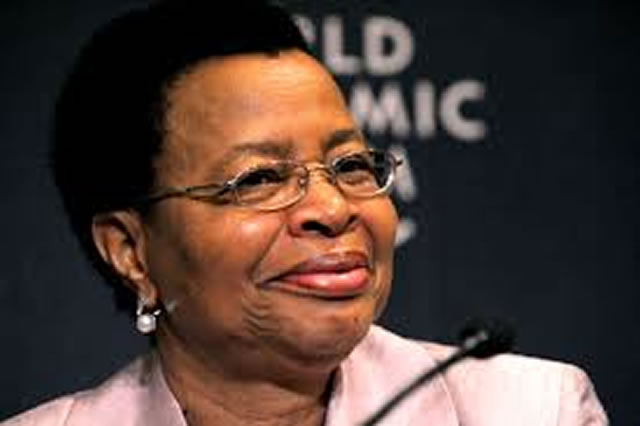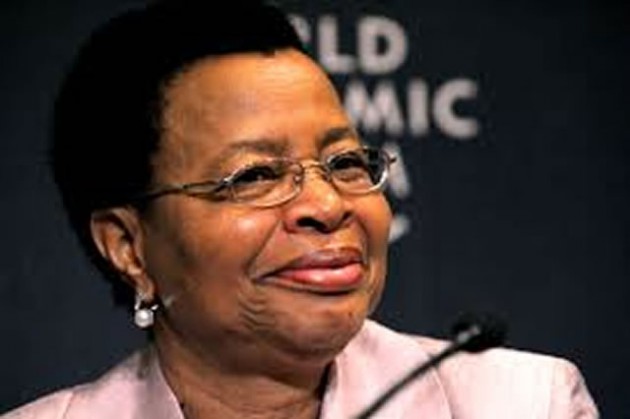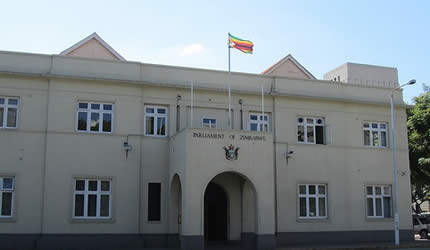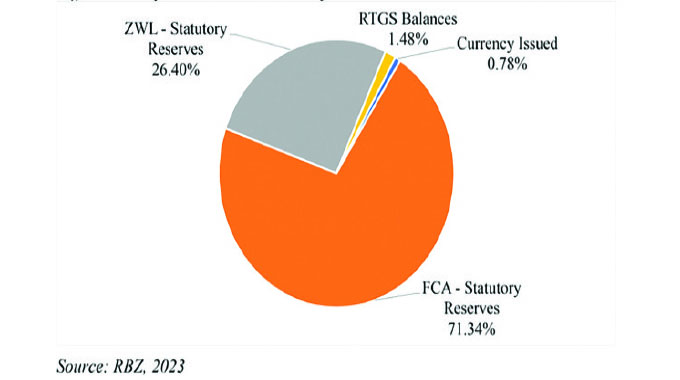United front will carry day for women

Victoria Ruzvidzo Business Focus
Zimbabwean women, constituting 52 percent of the population, have a critical role to play in this economy if it is to realise its full potential.
The Zimbabwe Agenda for Sustainable Socio-Economic Transformation will need women to play their roles effectively if it is to harvest any positive results.
That women have the potential to turn things around is no longer news. It is an established fact.
Already women play a multiplicity of roles in propping the economy, starting at household level, the community and further up the hierarchy.
Of course they have not yet arrived but some progress has been noticeable in terms of successfully run businesses and also in their occupying high office in the corporate world as board members, chief executives and finance directors, among others.
Last Friday some Zimbabwean women had an occasion to refuel and glean from a reservoir of knowledge, information and experience in the form of former Mozambican first lady Mrs Graca Machel, in their quest to have their fair share of the pie.
Mrs Machel, who herself is a successful entrepreneur and philanthropist has long been identified as one of Africa’s most prominent women with a lot to offer to the upcoming generations.
She was in Zimbabwe to launch the local chapter of the Network of African Business Women (NABW), a body affiliated to the Graca Machel Trust.
When she came to Zimbabwe she did not disappoint. She spoke passionately about the need for women to work together as she left the hundreds of women gathered at a local hotel feeling that nothing would stand in their way.
NABW networks are found in 12 other countries in the region, offering platforms through which various women’s organisations can team up to present a more formidable voice not just in their respective countries but on the continent as a whole.
“We can be in our thousands, we can be in our millions but no face…no voice, voice is power. We need to influence policy and the future of the continent,” said Mrs Machel as she insisted that women would not achieve much if they remained fragmented.
“Our generation feels that we need to create a continental platform where women can take a seat and discuss issues of this continent,” she added.
The Zimbabwean chapter is headed by Ms Hazel Chinake who feels strongly that it is about time women stood up to claim their rightful position in the marketplace.
NABW’s other mandate is to provide a platform through which women celebrate each other and their achievements in their various organizations.
NABW Zimbabwe has such organisations as the Professional Women and Business Women Forum (Proweb), Empretec, Women in Construction, Roots, African Women in Agribusiness, Women’s Coalition, Queenmakers, Women in Mining and Awep, among other affiliates.
Indeed Zimbabwean women need to unite so they can speak with one solid voice as they interact with the powers that be.
There has been so much disunity among women as organisations seek more relevance by bad-mouthing one another but the general sentiment last Friday was that this attitude should belong to the dustbin of history as women seek to do things better.
Adjudged as their own worst enemies, women have really not helped matters over the years as they leave the powers that be confused over who to listen to or who to believe as petty jealousies get in the way of progress.
Over the last decade or two, women have become more daring as they seek to ascend the ladder of success in business, politics and other spheres.
Such challenges a lack of capital, poor market access, knowledge gaps can be dealt with decisively if women coalesce to form a formidable force.
Boka group of companies chief executive Rudo Boka also inspired women at the event as she spoke of the impact women had had in the tobacco sector.
“Women by their numerical majority, representing 80 percent of rural dwellers and their strategic role as the nation’s mothers, cannot be ignored in national development.
“Rural women work 16-18 hours a day, spending at least 49 percent of their time on agricultural activities and about 25 percent on domestic activities,” she said.
The above statistics alone leaves no doubt that indeed in terms of agriculture and other sectors of the economy women are doing their bit but would want to do more to help turn the economy’s wheels.
Statistics from Ms Boka also showed that women contributed more than 25 percent of the $711 million raked in by tobacco exports in 2013.
Unilever Brand Director for Southern Africa Juliet Ziswa emphasised the need for women to brand themselves so they could occupy their rightful space.
This did not come cheap as women would need to work hard and be more organised in the way they did business.
We, therefore, anticipate a better way of doing things by women and more recognition as the playing field is levelled.
Below is an email from John Ishe:
Dear sister Victoria,
“After finishing reading your article on ZESA salary saga I decided to contribute my views on how best I can contribute to the betterment of our country. Maybe you will be able to pass these views to our national leaders. I could not because I failed to get government emails, which I think is a major weakness on the part of government in this day of ICT.
“I am 46 years old which places me in a better position to compare the pre-hyperinflationary period and now. I worked for government (Ministry of Agriculture) for twoyears after university and joined the private sector and hence I can compare the two.
1. Appreciation of the value of the US dollar
“The transition from the Zim dollar to the US dollar was not managed at all. Arbitrary rates were used. While market forces have forced most companies in the private sector to reduce the prices this has not been the case in government and quasi government institutions which are monopolies. The reason is simple a lot of people are benefiting because they have unrealistic and unsustainable salaries. In other words they are being selfish at the expense of the nation.
“The rate at which local authorities are attaching residents’ properties for failure to pay rates is alarming. You and me know that council rates and electricity bills were affordable long back. The fact is that the tariffs are unaffordable! When Government directed local authorities to write off debts for domestic properties, it should have gone further to lower the tariffs. I can bet my dollar that council would be getting more revenue than now when. Businesses, who by the way did not benefit from this offer, are closing shop. Even the farmers they can’t afford the high electricity and water tariffs to grow winter crops.
“So how do we address this challenge? Simple! The Reserve bank must give us the Zim dollar to US dollar exchange rate prevailing in 1998 when the economy was still stable. All monopolies must be forced to determine the US dollar charges prevailing then including salaries.
“I bet that very few parastatal bosses would have salaries above $2 500 per month. The government may actually not need to increase salaries of civil servants. The private sector will follow. Without addressing cost structure of monopolies the economy will not improve. Even if donors come back that will not assist us because to a donor a 500 000 dollar donation is a lot of money but to us it’s nothing.
“While the pre-paid meters are good, still the cost of supply and installing the meters was too high’ it is now being passed on to consumers. How can mounting meters on poles increase the cost by 13 million dollars?
“The allegations by ZESA employees that some ZESA management has shares in the local companies that installed the prepaid meters seem to make sense. Even the lavish lifestyles exhibited by directors of these companies point to overpayment. If I had my way ZESA would have sourced and done the installations. It has the capacity.
“Now that local authorities noticed how their counterparts at ZESA benefited they now want to install water meters. We are being hoodwinked the cost of water is minimal almost everyone can afford it more so when it’s not available. It is the other rates that they want to collect. Use the correct tariffs and you will not waste money on these meters people will afford.
2. Balance of payment support
“Why do we spend so much money importing things like Twizza the fizzy drink, when we have locally produced drinks? Why is it that the vehicle population much higher than when our GDP was higher. If Government says it gets, for example 300 million dollars as duty at the border how much money would have been exported to Japan with all the corruption at the border? Why is it that there are more Government employees enjoying benefits now than in 1998? We need to go back to the vehicle policy prevailing in 1998.
I thank you”
In God I Trust!
[email protected] Whatsapp messenger: 0772129972









Comments